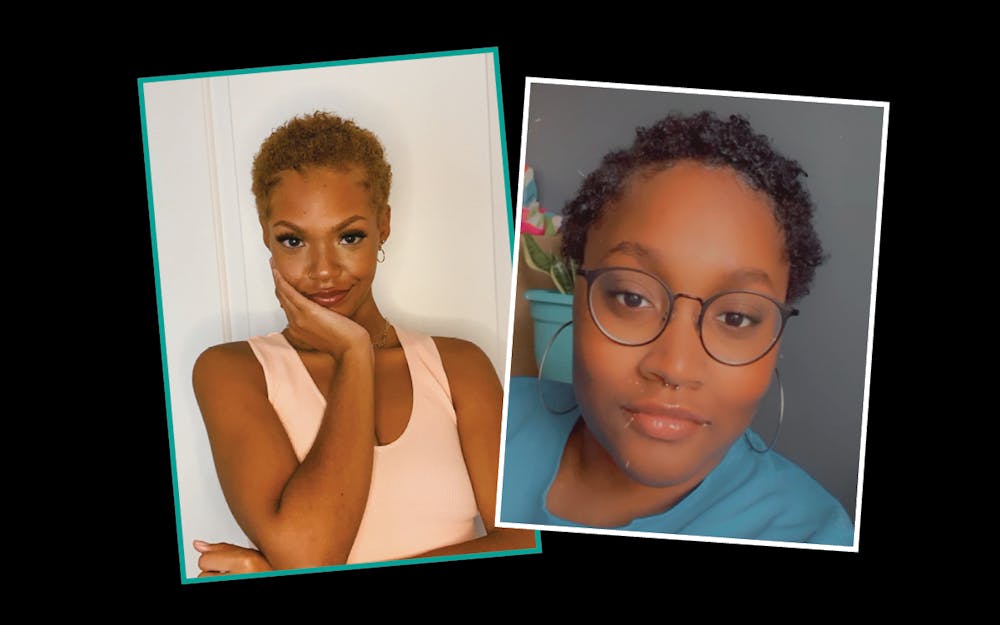Since March, many Black women decided to cut their natural hair short.
The increase of Black women cutting their hair over the pandemic is not only because of the limited access to hair salons and beauty supply stores, but also to the change in beauty standards, according to ZORA, a Medium publication for Black women.
High numbers of Black women are rocking their short, natural hair, whether it is because they want to be more confident in themselves or because they simply did not know what they wanted to do with their hair.
While junior Kori Smith was growing up, many of her family members praised her for the way her hair looked, she said. In late December, Smith made the impulsive decision to cut her hair short, but not long after cutting it, she started crying.
“I was so attached to my hair,” she said. “I have always been connected to it because it is like my marker.”
Related: [Read more Black Voices coverage here]
Hair styling can help women portray their personality and express their creative side.
Today in Africa, many schools require young girls to cut their hair because they believe it removes the distraction of hair maintenance. Other African women shave their heads to signify respect for their dead husbands and fathers.
Many Black women also cut their hair to build self-esteem.
Initially, Smith didn’t think cutting her hair would boost her self-esteem because she was attached to her shoulder length hair, she said. Yet Smith said she noticed a positive change in how she viewed herself — not having much hair on her head forced Smith to start to focus on her face and noticed how beautiful it is.
“As soon as I cut my hair I was like, Oh, girl, look at that face,” she said.
Smith also said cutting her hair made her feel more in touch with her femininity. Growing up, she perceived herself as a tomboy, but after she cut her hair she learned to put love and attention into herself.
While some women cut their hair for no specific reason, others, such as junior Ashley Simpson, did so to have healthier hair in the future.
Simpson’s hair was relaxed — chemically altered to make it easier to manage and straighten. While relaxers make it easier to manage, they also chemically damage natural hair curl patterns.
She cut her hair off in September, but she did not immediately notice an impact on her self-esteem, she said.
“I didn’t realize it until it was gone,” she said. "I loved having long hair, and when it was gone, I didn’t know what to do with myself.”
Black women are taught from their mothers or motherly figures to make sure their hair is presentable at a young age, and as short natural hair was not a part of previous beauty standards, they taught them to stray away from cutting their hair.
Smith believes Black women highly value their hair due to the stereotypes of natural hair being unruly and unprofessional.
“If it's real kinky it scares people off,” she said. “That’s unprofessional all of the sudden, even though it’s the hair that grows out of your head.”
In 2017, news anchor Brittany Noble wore her natural hair, and after one month, her director asked her to change it because it was “unprofessional.” Noble continued to wear her natural hair, and she was then fired from her news station in Jackson, Mississippi.
Smith said because of hair stereotypes, Black women are attached to the way their hair looks and stray away from hairstyles that could perpetuate these stereotypes.
“If you think about cutting your hair, cut it,” she said. “Just do it, hair grows back.”
Even after she briefly cried over the loss of her hair, Smith still advocates for Black women cutting it off, she said.






